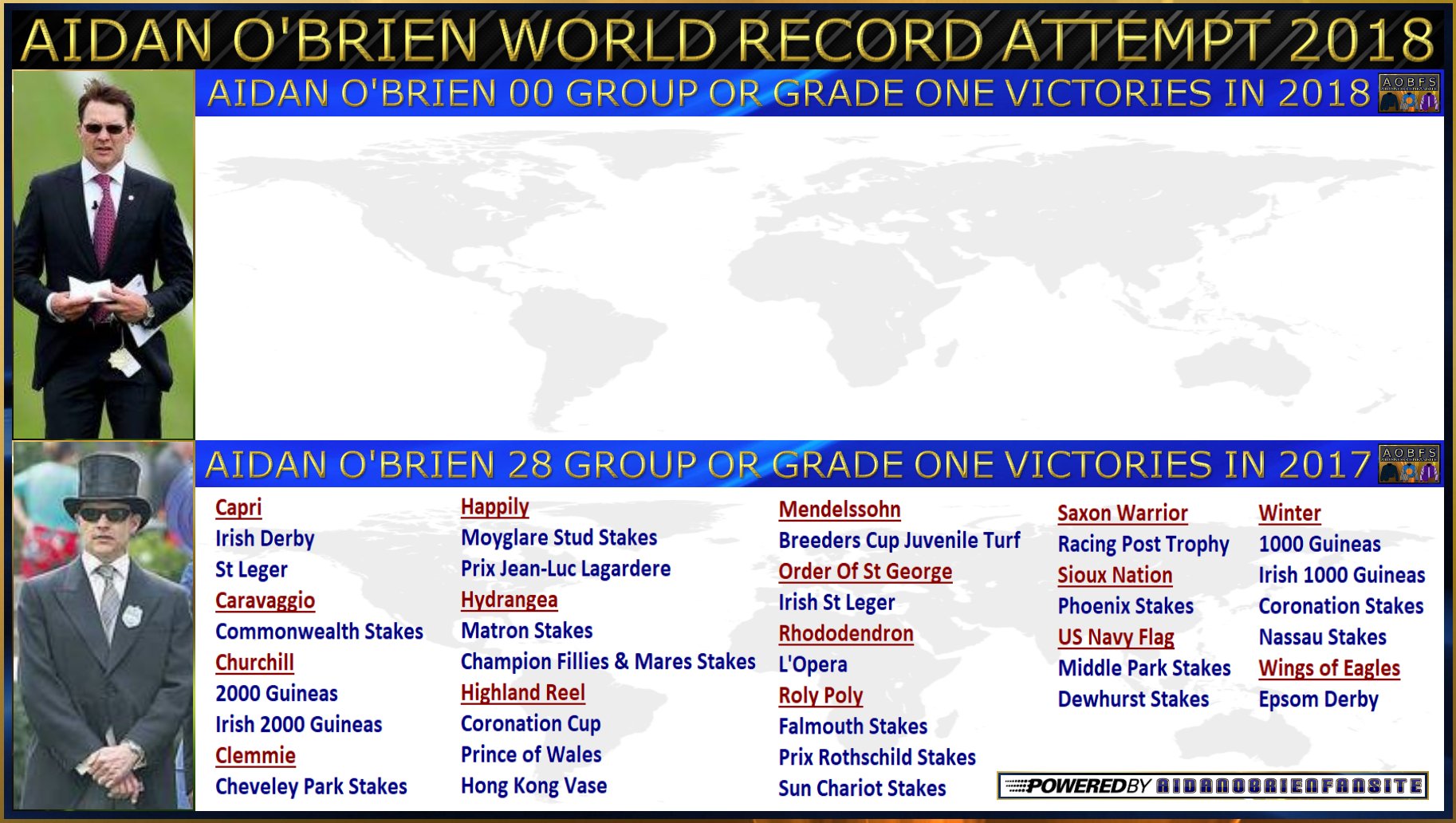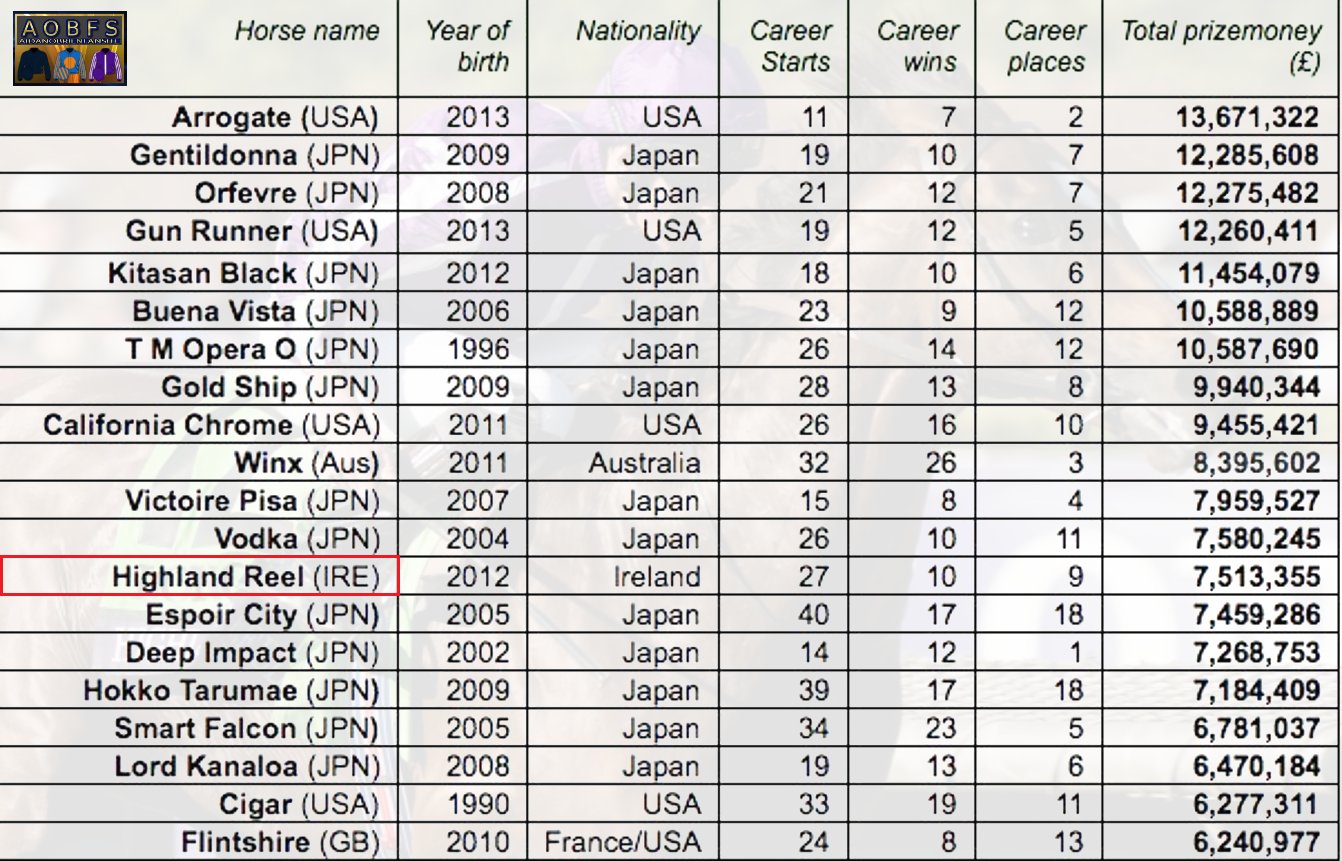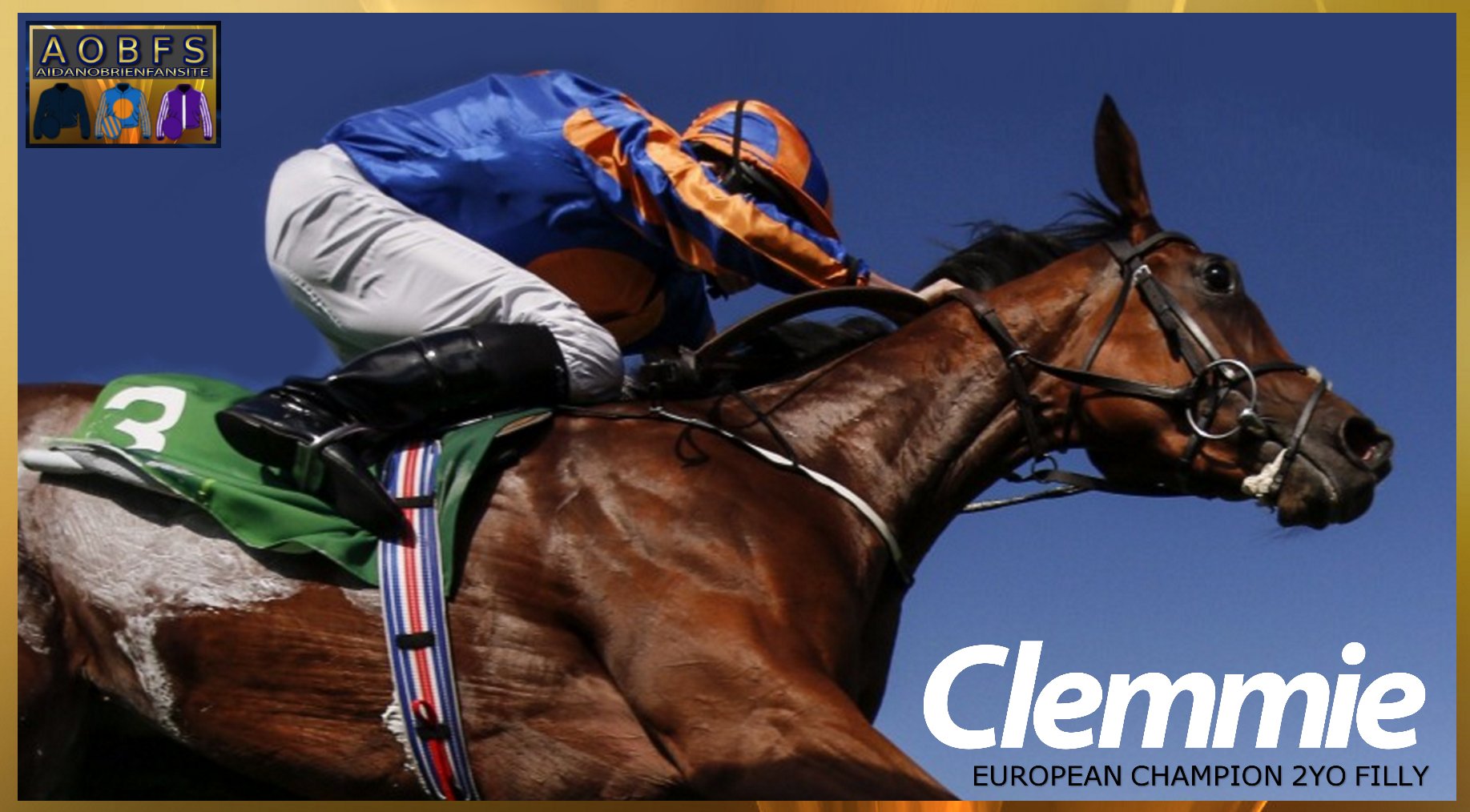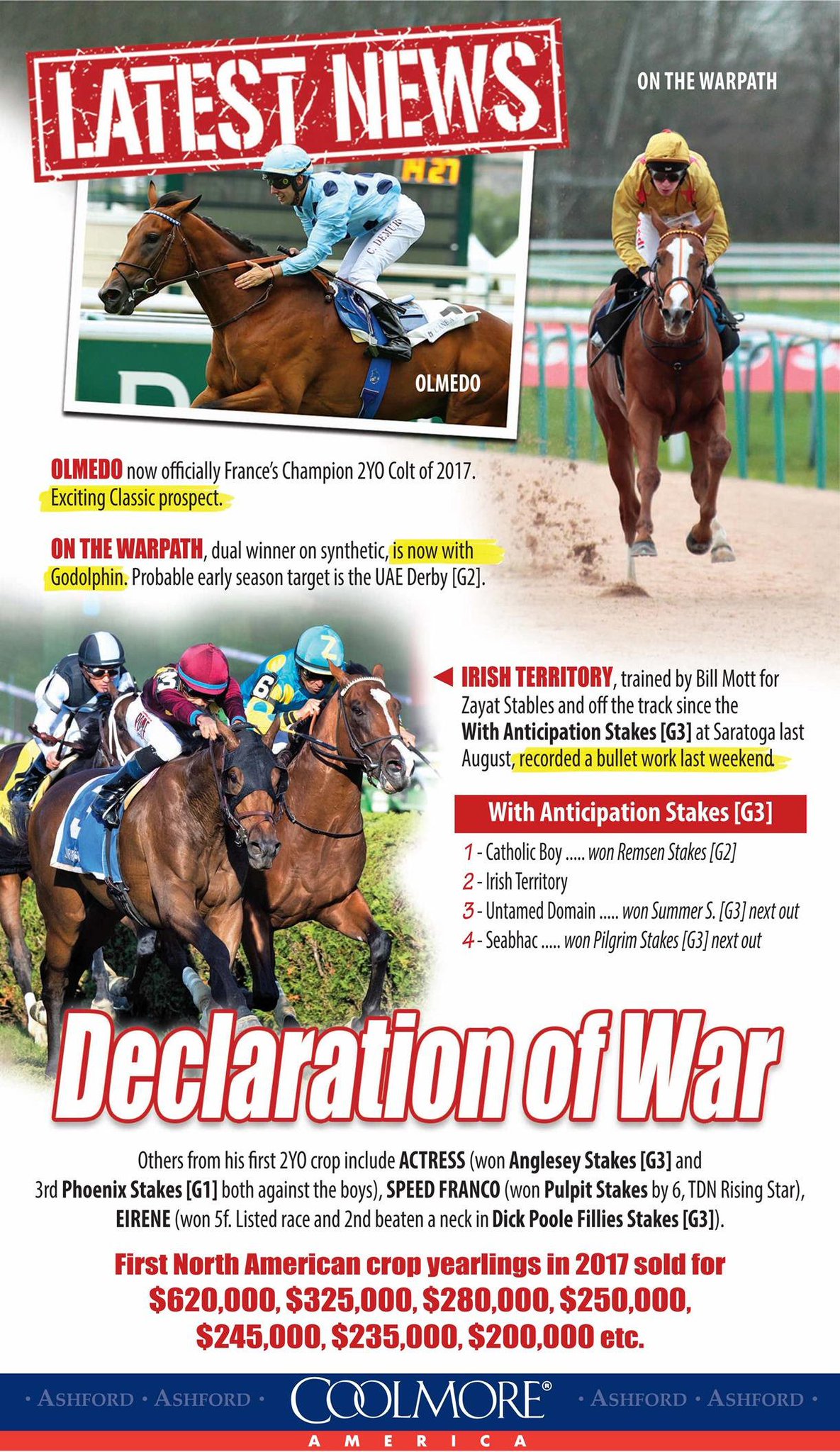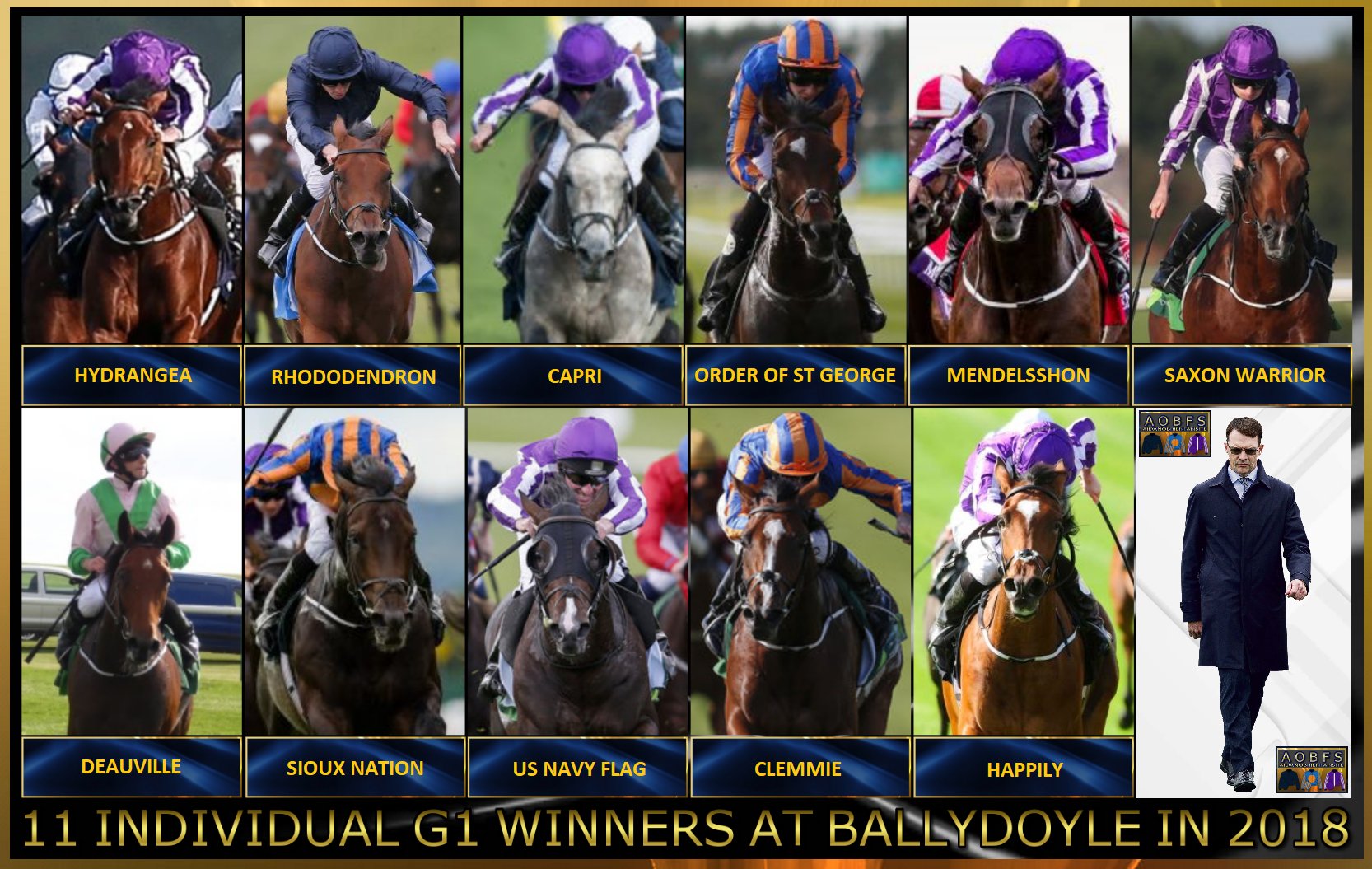New Coolmore Posters - Zoffany & War Command
-------------------------------------------------------------------------------------------------------------------------------------------
Ballydoyle Racing fail to secure exemption on working hours for stable staff
The Labour Court has rejected an appeal brought by Ballydoyle, the State’s leading racing stables, against compliance notices served by the Workplace Relations Commission over alleged excessive working hours on the part of some staff.
In the course of an inspection in May 2016, a Workplace Relations Commission inspector found a number of breaches of the Organisation Working Time Act. These involved the failure to provide sufficient breaks and rest periods for a number grooms and exercise riders.
In February last year the inspector issued four compliance notices against Ballydoyle in relation to his findings.
The inspector maintained there had been a failure to grant daily rest periods of 11 hours to three named employees; a failure to grant three employees a weekly rest period of 24 hours in each of four consecutive weeks; a failure to grant four named employees two rest periods of at least 24 consecutive hours each in a week following a week in which they had not received a single weekly rest period of 24 consecutive hours; and a failure to grant four named employees a weekly rest period that included a Sunday in any four specified weeks in May 2016.
Last summer, Golden Dale Unlimited Company, trading as Ballydoyle Racing, brought an appeal to the Labour Court against the compliance notices served on it by the inspector. Ballydoyle contended it was exempt from provisions of the legislation because its staff were engaged in agricultural activities.
Ballydoyle also argued that the nature of its business meant that grooms and exercise riders were involved in ensuring the continuity of production, and that the rate of production would vary from time to time.
Trainer Aidan O’Brien gave evidence to the Labour Court during the appeal that it was very important in the continuity of training horses that a strong relationship developed between an individual horse and its exercise rider and groom.
Asked under cross-examination whether additional grooms and exercise riders could be recruited so all staff could receive their statutory daily and weekly rest period, Mr O’Brien said this could be done but it would increase the health and safety risk for horse and worker because the same “telepathic” relationship would not be present between the horse and those attending the animal.
In his finding, Labour Court deputy chairman Alan Haugh said Ballydoyle had sought to advance an interpretation of the word “agriculture” that was far broader than the ordinary dictionary meaning.
The Labour Court also found in its conclusion that Ballydoyle had failed to demonstrate to its satisfaction that workers, who were the subject of the compliance notices, were “directly involved in ensuring the continuity of production or the provision of services”.
The court did not accept that the extremely broad definition of agriculture contended by Ballydoyle had any application in the context of construing a derogation from European law.
“In addition, the court does not accept that the appellant is entitled to avail of an exemption from its obligation to provide statutory rest breaks to those workers by virtue of the need to accommodate variations in production throughout the year.”
Ballydoyle is the racing arm of Coolmore Stud’s bloodstock operation, and Coolmore on Friday night declined to comment on the court’s ruling.
Horse Racing Ireland’s chief executive Brian Kavanagh said the outcome of the appeal was of “very serious concern” for racing.
Mr Kavanagh last year said that implementing strict employment laws outside the definition of agricultural work would make operations “impossible” within the bloodstock industry.
“I’d be greatly concerned at any determination that racing is not an agricultural activity. Racing has always been part of the agricultural sector. We answer to the Department of Agriculture. It sustains lots of jobs in rural areas. Our port of call is the Department of Agriculture. It’s all about animal husbandry and care.”
On Friday, Mr Kavanagh said he would have to consider any judgement issued by the Labour Court before commenting in more depth. However, he conceded: “It is of very serious concern to trainers in particular...Lots of sectors like agriculture, hospitality, transport all have to have flexibility to operate and manage the workload.”
-------------------------------------------------------------------------------------------------------------------------------------------
New Coolmore Posters - Highland Reel Camelot & Fastnet Rock
Link > https://www.racingpost.com/bloodstock/bloodstock-world/camelot-s-progeny-poised-for-a-colossal-classic-campaign/314534
-------------------------------------------------------------------------------------------------------------------------------------------
A NINTH CHAMPIONSHIP FOR GALILEO

As another New Year begins, another European Sires’ Championship heads the way of the incomparable Galileo.
It is amazingly the 9th time that the Coolmore flag-bearer has led the way in Europe, with the title never looking in any doubt.
According to TDN statistics, Galileo’s runners earned £15,145,613 in Europe in 2017 – more than double that of his nearest pursuer on £6,956,352.
Emma Berry wrote in the TDN: “In earning his ninth champion sire title in 2017, Galileo (Ire) hasn’t just got the better of some extremely decent fellow stallions in Europe, he has once again completely routed them.
“In 2015, there was a deficit of ‘only’ just over £3 million in prize-money between him and his now-perennial runner-up Dubawi (Ire) but the last two years have seen Galileo stretch farther and farther clear, each time earning more than double the tally accrued by Darley’s flagbearer.
“This year, Galileo’s 113 winners, including 47 black-type winners at a rate of 13.9% of his starters, have helped him to total earnings of £15,145,613.”
Galileo’s 12 individual G1 winners in 2017 include two new recruits to the Coolmore roster in the fantastic G1 2,000 Guineas hero and 2016 champion juvenile Churchill and 7-time G1 winner Highland Reel, the highest-earning European-trained horse in history.
Galileo also stormed away with the British and Irish sires’ championship once again. According to Racing Post statistics, his £11,931,301 earnings put him over £8 million clear of second-placed Dark Angel.
It was also another dominant year in the sale ring for Galileo, who was responsible for the world’s dearest yearling of 2017, a filly out of Dank bought by Godolphin at Tattersalls in October for 4 million guineas.
-------------------------------------------------------------------------------------------------------------------------------------------
Happy Christmas from the AOBFS Team it was quite a first year at stud for Camelot and there is plenty more to come in 2018. I think his progeny will flourish at 3.

-------------------------------------------------------------------------------------------------------------------------------------------
